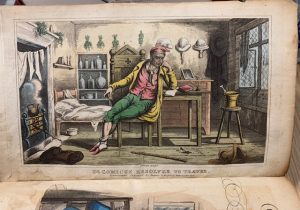The University of Pittsburgh Health Sciences Library System and the University of Iowa Hardin Library for the Health Sciences have been awarded 16 million dollars to support the Network of the National Library of Medicine (NNLM) All of Us Program Center (NAPC) for 2022-2026. The NAPC serves an important role in coordinating engagement and training activities offered by NNLM in support of the NIH All of Us Research Program (All of Us), a large, multi-faceted research initiative seeking to collect biomedical data from one million people across the United States, to support precision medicine by diversifying the data available for biomedical research.
The NNLM is a collaboration of academic institutions, hospitals, health departments, libraries, information centers, and community-based organizations that provide health information resources and services, or are otherwise engaged in health and wellness in their communities. These institutions are regional pillars serving as critical access points for health information and education in their communities. The NAPC will leverage this Network to disseminate and amplify health programs and resources while raising awareness of, and engagement with, All of Us.

 “The Adventures of Doctor Comicus or The frolics of fortune; a comic satirical poem for the squeamish & the queer in twelve cantos” was written by A Modern Syntax in the 19th century. It is a satirical poem about the amusing misfortunes of a poor country doctor during his trip to find a wife and to escape life as the all-in-one village barber, doctor, schoolmaster, and sexton. Whether it was a dream or a real escapade, it ended with Doctor Comicus’s sobering observation that,
“The Adventures of Doctor Comicus or The frolics of fortune; a comic satirical poem for the squeamish & the queer in twelve cantos” was written by A Modern Syntax in the 19th century. It is a satirical poem about the amusing misfortunes of a poor country doctor during his trip to find a wife and to escape life as the all-in-one village barber, doctor, schoolmaster, and sexton. Whether it was a dream or a real escapade, it ended with Doctor Comicus’s sobering observation that,